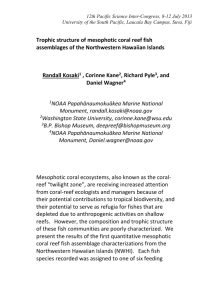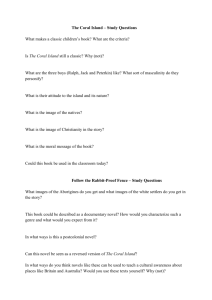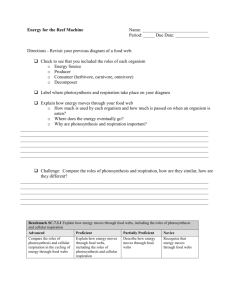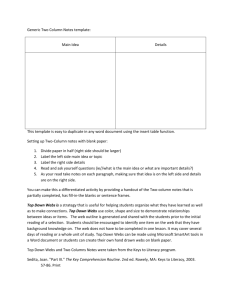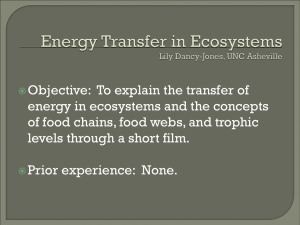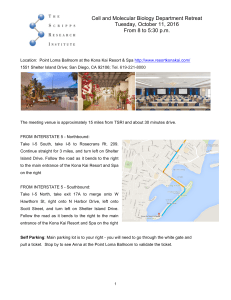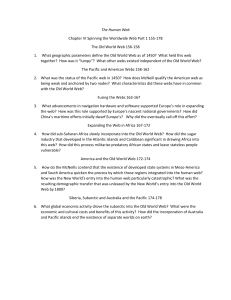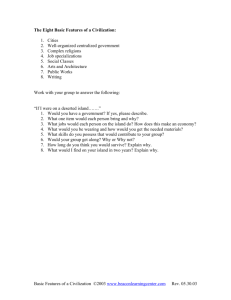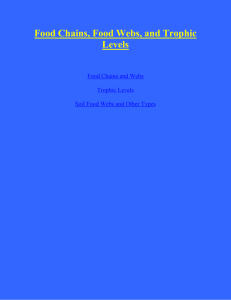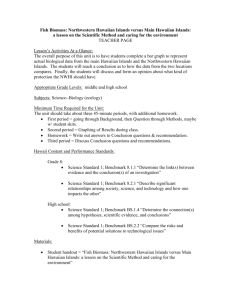WEBQUEST SUMMARY Title: Papahānaumokuākea Marine National
advertisement
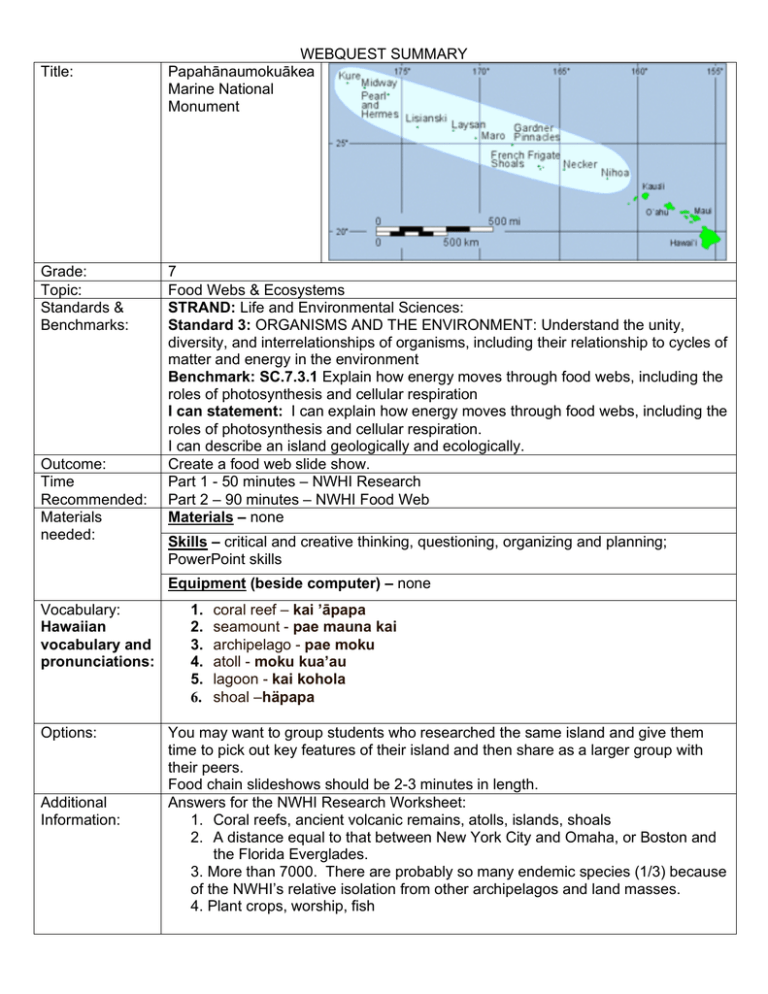
Title: Grade: Topic: Standards & Benchmarks: Outcome: Time Recommended: Materials needed: WEBQUEST SUMMARY Papahānaumokuākea Marine National Monument 7 Food Webs & Ecosystems STRAND: Life and Environmental Sciences: Standard 3: ORGANISMS AND THE ENVIRONMENT: Understand the unity, diversity, and interrelationships of organisms, including their relationship to cycles of matter and energy in the environment Benchmark: SC.7.3.1 Explain how energy moves through food webs, including the roles of photosynthesis and cellular respiration I can statement: I can explain how energy moves through food webs, including the roles of photosynthesis and cellular respiration. I can describe an island geologically and ecologically. Create a food web slide show. Part 1 - 50 minutes – NWHI Research Part 2 – 90 minutes – NWHI Food Web Materials – none Skills – critical and creative thinking, questioning, organizing and planning; PowerPoint skills Equipment (beside computer) – none Vocabulary: Hawaiian vocabulary and pronunciations: Options: Additional Information: 1. 2. 3. 4. 5. 6. coral reef – kai ’āpapa seamount - pae mauna kai archipelago - pae moku atoll - moku kua’au lagoon - kai kohola shoal –häpapa You may want to group students who researched the same island and give them time to pick out key features of their island and then share as a larger group with their peers. Food chain slideshows should be 2-3 minutes in length. Answers for the NWHI Research Worksheet: 1. Coral reefs, ancient volcanic remains, atolls, islands, shoals 2. A distance equal to that between New York City and Omaha, or Boston and the Florida Everglades. 3. More than 7000. There are probably so many endemic species (1/3) because of the NWHI’s relative isolation from other archipelagos and land masses. 4. Plant crops, worship, fish
